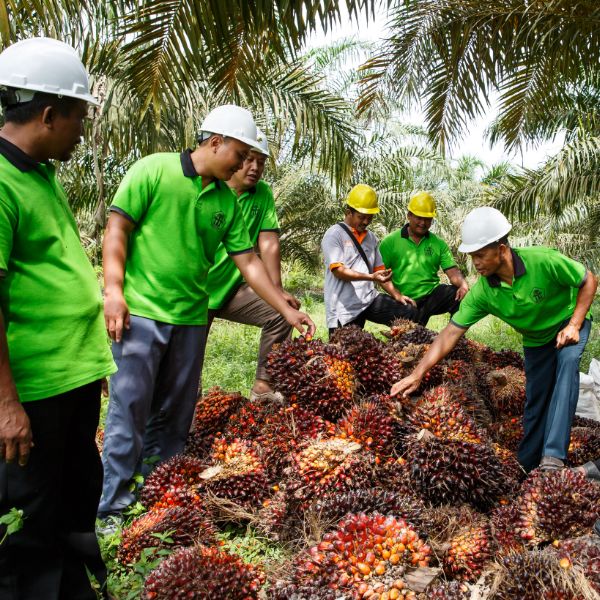Which RSPO Certification is right for you?
Independent smallholders
You would get certified under the 2019 RSPO Independent Smallholder (ISH) Standard
You are an independent smallholder if:
- You are NOT a scheme smallholder (see definition below)
- The total size of your oil palm production area is:
- smaller than or equal to 50 hectares(ha) if no threshold is defined in a National Interpretation; OR
- smaller than or equal to the maximum size defined in a National Interpretation (e.g., for Indonesia this implies threshold size is 25 ha or below and for Ecuador 75 ha or below).
- You have the enforceable decision-making power on the operation of the land and production practices.
- You have the freedom to choose how you utilise the land, type of crops to plant, and how to manage them (how yoy organise, manage and finance the land).
- You meet any further criteria relative to the applicability of this standard as provided in the National Interpretation of their country.
Scheme smallholders
You would get certified under the 2018 RSPO Principles and Criteria (P&C)
You are a scheme smallholder if:
- The enforceable decision-making power on the operation of the land and production practices; and/or
- The freedom to choose how they utilise their land, types of crops to plant, and how they manage them (how they organise, manage and finance the land) (source : RSPO P&C 2018);
- Smallholders that may be structurally bound by contract, credit agreement or by planning to a particular mill, but the association is not necessarily limited to such linkages. Other terms commonly used for schema smallholders include associated and/or plasma smallholders (source : RSPO Certification System for P&C 2017).

See why certification makes a difference
The RSPO Standard for Independent smallholders
The 2019 RSPO Independent Smallholder (ISH) Standard aims to increase the inclusion of smallholders by introducing a phased approach to implement sustainable practices across the three sustainability pillars – People, Planet and Prosperity, over a specified period of time.
Are you a scheme smallholder? You would get certified under the 2018 RSPO Principles and Criteria (P&C). View it here.
Three phased approach

Key certification documents
Independent Smallholders’ Key Documents
Guidance Document and Template for Independent Smallholders
- RSPO Independent Smallholder Standard Auditor’s Checklist
- Principle 1 of the ISH Standard
- Principle 2 of the ISH Standard
- Principle 3 of the ISH Standard
- Principle 4 of the ISH Standard
Disclaimer: The content on this site is provided to the public as an overview. This website is constantly being updated. We will make every attempt to keep this site up to date and correct all inaccuracies that are brought to our attention. You are encouraged to email our Smallholder Team to get the latest information.

